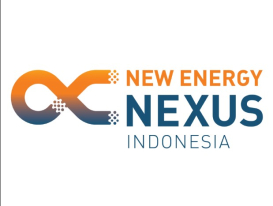Exploring trends and challenges in Indonesia's startup industry: Focus on green tech, embedded finance, and health tech for 2023
Early 2022 marks a rough beginning for startups. A number of major events became important highlights within the startup industry.
A report released by DSInnovate highlighted major layoffs as part of efficiency measures conducted by startups. In addition, the report also highlights opportunities in three startup industry sectors, as well as challenges faced by these sectors.
According to the e-Conomy SEA report published through cooperation by Google, Bain & Company, and Temasek in 2022, Indonesia's digital economy is showing a positive trend with predictions reaching US$ 77 billion (IDR 1.16 quadrillion) in 2022, and will reach US$ 130 billion in 2025.
Based on the AsianNikkei report, a total of US$ 4.2 billion from 260 funding transactions has flowed to the startup industry sector in Indonesia throughout 2022. However, this amount has decreased from the previous year's total funding of US$ 6.9 billion.
According to DailySocial.id, fintech is the sector with the largest funding reaching up to US$ 1.71 billion, Online Travel Agent (Traveloka) with US$ 300 million, and agritech with US$ 229.9 million.
In terms of transaction funding, fintech dominates the rank with 29 transactions, followed by agritech with 15 transactions, and social commerce with 11 transactions.
Meanwhile, in 2022, there were 34 mergers & acquisitions (M&A), which will doubles from the number recorded in 2021.
Most of the M&A comes from the fintech sector, such as the merging between Xendit and Bank Sahabat Sampoerna; Communal, and BPR (Kediri); FinAccel Technology, and International Business Bank.
"Currently, we are in the midst of a new global economic cycle that requires us to make adjustments to risk management, exit valuations, and capital deployment. However, Indonesia's resilient economy and strong fundamentals have put us on a high growth trajectory, and we are excited to be a part of it," said Willson Cuaca, Co-Founder and Managing Partner of East Ventures, quoted from DailySocial.id.
Three sectors are the main trends in 2023
According to the DSInnovate: Startup Report 2022 by DailySocial.id, the projected trend throughout 2023 will be focused on three sectors, namely green tech, health tech, and embedded finance.
1. Green Tech
The report mentions that there are indications of significant growth in the green-tech sector in recent years.
This growth is in line with Indonesia's commitment to achieving Net Zero Emissions by 2060. The Indonesian government encourages all stakeholders to develop and innovate in the green tech sector to exercise sustainability.
Trends in this sector can be reflected in increasing venture capital (VC) investment into green tech startups.
Throughout 2022, there were 15 funding transactions recorded related to green tech. Previously in 2021, there were only 5 transactions, and 2 transactions in 2020.
However, based on research from Southeast Asia's Green Economy 2022, investment coming into the green tech sector is still driven by corporations.
Corporations invest with an interest in the development of renewable energy (EBT), and Private Equity (PE) and Venture Capital (VC) disburse most of their funding to the mobility, solar power, and sustainability sectors.
"According to my experience as an angel investor in this area, it is difficult for investors to get involved in funding regardless of the large capital needed by startups to develop innovation and scale their business. Startups in the green sector usually take a longer time to return compared to other technology startups. Uncertainty policies and regulations affect the development of green innovation for early-stage startups. It's even difficult for VCs to predict investment returns accurately," said Alfred Boediman, Co-Founder and Managing Partner of Jawara Ventures, quoted from DailySocial.id.
2. Embedded Finance
In Indonesia, the fintech sector has developed rapidly with many investors making funding in recent years.
Currently, the Indonesian fintech sector is at a high level of maturity. The fintech sector has great potential because of the large population of unbanked and underbanked people with a total of 90 million in both segments.
DSInnovate also reports that there are technological developments in the financial sector that are not centered on digital payments.
Now, the embedded finance trend is starting to develop, replacing the open finance trend, and open banking is still relatively new.
Currently, Indonesia has six startups based on open finance and embedded finance, including Ayoconnect and Digiasia Bios.
3. Healthtech
In the last three years, the healthcare industry has been in the spotlight because of the ongoing Covid-19 pandemic.
The world health crisis has led to the need for an alternative for Indonesia to develop digitalization and improve the health industry.
In the last two years, the health tech industry has grown by obtaining an investment of US$ 107.9 million out of a total of US$ 231.7 million accumulated funding over the last eight years in this sector.
This shows that in the last two years, this sector has experienced a drastic increase in funding.
The Indonesian Ministry of Health in its progressive step map for 4 years (2020-2024) shows the desire and support to revolutionize the Indonesian health industry by involving many stakeholders.
During this transformation, the government created the Satu Sehat platform which will connect all health service data from upstream to downstream.
In addition, the government also prepared policies that will facilitate the process of exchanging health data and developing technology in the health sector.
Risk in startup business in 2023
Based on the AsianNikkei report, funding in Southeast Asia is slowing down starting in 2022 compared to the previous year.
The main trigger is the geopolitical situation which has a direct impact on investment in the region.
The uncertain economy makes it difficult for startups to secure funding to develop their business, compared to 2021, where total funding has skyrocketed to over US$ 25 billion.
Already have an account? Sign In
-
Start reading
Freemium
-
Monthly Subscription
30% OFF$26.03
$37.19/MonthCancel anytime
This offer is open to all new subscribers!
Subscribe now -
Yearly Subscription
33% OFF$228.13
$340.5/YearCancel anytime
This offer is open to all new subscribers!
Subscribe now




